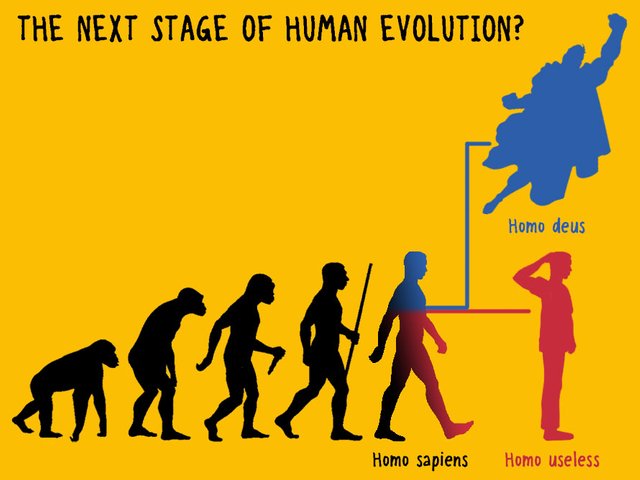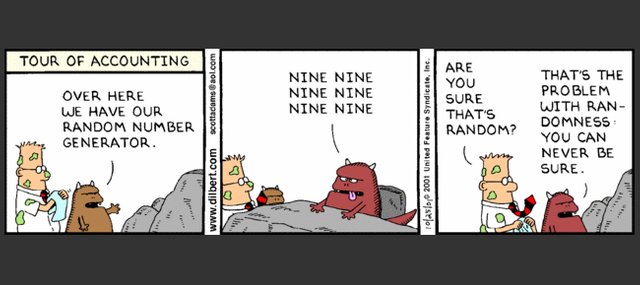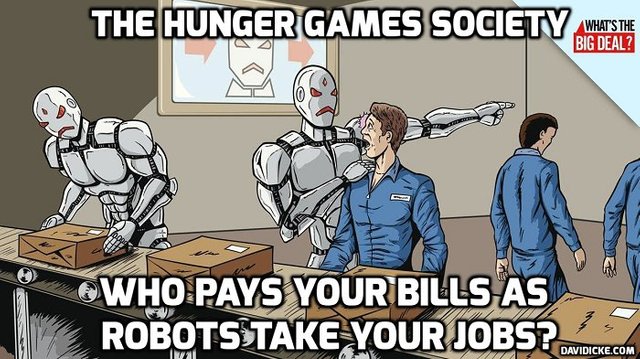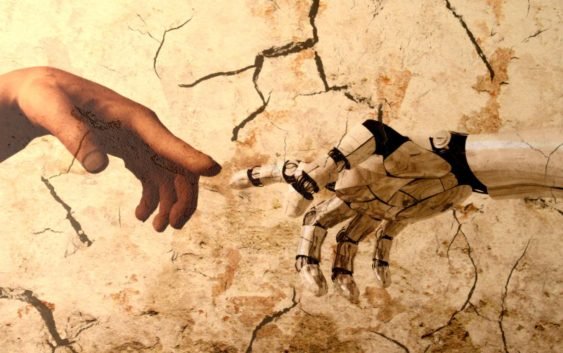Homo Deus (Part 3) - HOMO SAPIENS LOSES CONTROL
In the first and second part of the book, I explained what Yuval Noah Harari was talking about how Humanity reached a breaking point. The third part of the book is even bleaker in the proposed outcome, since it is called HOMO SAPIENS LOSES CONTROL.

Why so? Well... First of all, because humans never actually had control!
Freedom is a myth

First of all, Y.N.H. is quite dismissive of our so-called freedom. It seems that humanity is caught between the anvil of determinism (everything is set up) and the hammer of randomness.
What makes me board one train of reasoning rather than another? In the Paddington of my brain, I may be compelled to get on a particular train of reasoning by deterministic processes, or I may embark at random. But I don’t “freely” choose to think those thoughts that will make me vote Conservative.
So, freedom is an illusion, a fiction, a narrative spun by the liberal philosophy of our world. Freedom is supposed to be our shared value, inalienable, what constitutes our inner self. However, Y.N.H. crushes all hopes for us to have individuality:
If you look really deep within yourself, the seeming unity that we take for granted dissolves into a cacophony of conflicting voices, none of which is “my true self”. Humans aren’t individuals. They are “dividuals”.

Not so individual after all
Most importantly, Y.N.H distinguishes two main “self”: the experience one and the narrative one.
“Most of our critical life choices - of partners, careers, residences, and holidays - are taken by our narrating self. [...] The narrating self goes over our experiences with a sharp pair of scissors and a thick black marker. It censors at least some moments of horror, and files in the archive a story with a happy ending. [...] Each of us has a sophisticated system that throws away most of our experiences, keeps only a few choice samples, mixes them up with bits from movies we saw, novels we read, speeches we heard, and from our own daydreams, and weaves out of all that jumble a seemingly coherent story about who I am, where I come from and where I am going.
The human project hard fork
That’s why the liberal philosophy stands on the cliff’s edge of perdition and why Y.N.H. is so pessimistic about the chance of Homo Sapiens to make it out of the XXIst century alive. And he identifies three main problems for the average Homo Sapiens:
Humans will lose economic and military usefulness (robots to work, drones to fight);
Humans have two basic type of abilities: physical and cognitive. As long as machines competed with us merely in physical abilities, you could always find cognitive tasks that humans do better. So machines took over purely manual obs, while humans focused on jobs requiring at least some cognitive skills. Yet, what will happen once algorithms outperform us in remembering, analysing and recognising patterns?
Take a look at the army: you needed so far a conscious human being to fire a gun in the army. Now, the gun is intelligent and even if not conscient can be intelligent enough to do the job of any soldier. Same for work: we keep training thousands of doctors and nurses every year. What about developing ONE unique doctor robot, and update it from time to time. No more human doctors, just the same doctor providing help all around the globe.

Unique individuals will be made redundants, and a useless class will emerge;
The Proletariat is heading to the dustbin of History:
In the 21st century we might witness the creation of a new massive class: people devoid of any economic, political or even artistic value, who contribute nothing to the prosperity, power and glory of society. [...] The technological bonanza will probably make it feasible to feed and support the useless masses even without any effort on their side. But what will keep them occupied and content?

Y.N.H suggests that the gaming industry might provide some entertainment for the masses for a while but also alludes at the temptation of the elite to simply discard those useless masses because there is actually nothing else to do with them:
Unlike in the 20th century, when the elite had a stake in fixing the problems of the poor because they were militarily and economically vital, in the twenty-first century the most efficient strategy may be to let go of the useless third-class carriages and dash forward with the first class only.
A new elite of upgraded superhumans will be the only one to truly take advantage of the situation.
As algorithms push humans out of the job market, wealth might become concentrated in the hands of a tiny elite that owns the all-powerful algorithms, creating unprecedented social inequality.
The wave of the future: The Big Data Society

One of the way Humanity may lose all relevance in the grand scheme of things is through the data flux of the new golden age of informatics.
In the 21st century our personal data is probably the most valuable resource most humans still have to offer, and we are giving it to the tech giants in exchange for emails services and funny cat videos. [...] Liberalism will collapse on the day the system knows me better than I know myself. Which is less difficult than it may sound, given that most people don’t really know themselves well.
The data of the humans (and the world) are so valuable that their collect and treatment might even turn into a new religion.
From a dataist perspective, we may interpret the entire human species as a single data-processing system, with individual humans serving as its chips.
Of course, the dataist perspective has started slow. First, humans were reluctant to bond together and life was hard. It’s not only they mastered agriculture and trade that humans eventually started to coalesce in a group capable of exchanging information at a sufficient rate. And we can even interpret history as the story of how humans found the best way to exchange and process data:
We often imagine that democracy and the free market won because they were “good”. In truth, they won because they improved the global data-processing system.
The information wants to be free! Today, information has never fluctuated at such rapidity and in such quantity as never before, and the outcome is chilling:
We are striving to engineer the Internet-of-all-Things in the hope that it will make us healthy, happy and powerful. Yet once the Internet-of-all-Things is up and running, we might be reduced from engineers to chips, then to data, and eventually we might dissolve within the data torrent like a clump of earth. Dataism thereby threatens to do to Homo sapiens what Homo sapiens has done to all other animals.

This is where stops the book of Yuval Noah Harari and the perspective he gives us on the next centuries is not fun at all. Of course, there is no way of knowing if the program he laids out there for us is really going to happen in such a way. The impredictability of it all makes it impossible to be sure. How do we know we are not going to annihilate ourselves in a nuclear war in the next decade or so?
But even if a third of what the book proposes happen (and it is mostly already happening), we have reasons to be worried, and reasons to invest more and more in our own education and the education of our fellow citizens.
Thanks for reading!
Here are the two former parts:
Source:
https://www.amazon.fr/Homo-Deus-Brief-History-Tomorrow/dp/1910701874
What a great read... Awesome job..
Interesting post. I'll have to go back and read the first two I missed.